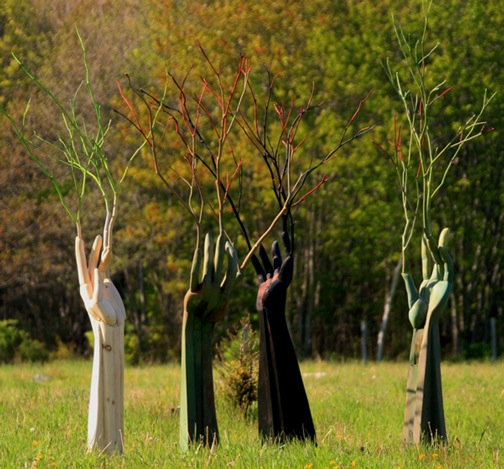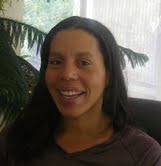
07 Sep LIVING ON THE EDGE
All too often I encounter environmentalists who are so disgruntled and disillusioned that they believe nothing we do will stop our current ecological and social crisis. While there are certainly elements within myself that resonate with this stance, I see that there are infinite actions available to us to respond to the crisis. There seems to be a delicate balance with facing injustice in the world and still being able to see what is beautiful.
Like many people, I spend much of my time concerned about the state of the world. I listen to the news day after day, hearing about the horrible things that are going on –shootings, bombings, disease, murders, dictatorships, corruption, racism, factionalism, war, poverty, fires, floods, toxicity, rape, hate crimes, suicides, genocide and desperation. Human made global warming is forcing island peoples to relocate. Children are stolen from their homes never to be returned. Others are beaten and sexually abused. More and more animal and plant species are disappearing from the planet. There are more and more homeless people. Wild places continue to be bought out in spite of public outcry in order to be developed for more subdivisions and malls. People are diagnosed with cancers and other diseases through exposure to toxic substances in their water, food, air, and soil. Women and men are paying tens of thousands of dollars to cosmetically alter their faces and bodies. Countries continue to possess and/or develop nuclear and other chemical weapons. Addictions to alcohol, drugs, sex, food, and prescription drugs continue to rise. It is all so disheartening and there seems to be no end in sight. I often feel like I am waiting for everything to collapse and maybe then we will have to start over. Or if worse comes to worse, the human species will obliterate itself through nuclear war, wide spread disease, ecological disaster or perhaps all of the above, and then at least the remaining living systems might regenerate and thrive.
And when one recognizes this level of destruction and pain that is going on in our world, who wouldn’t feel anger, confusion, and despair? These are healthy responses to our global illness. They demonstrate the ability to feel the pain of our earth system instead of blocking it out and falling into denial of our crisis. By becoming compassionate to it, we are able to suffer with the earth, including other people, and to respond.
And just when I have slipped to the lowest point of dismay, I will turn off the radio, television, or my abstract thinking and notice how the beautiful shadow of an ascending raven forms an arrow on my closed curtains backlit by the late day sun. Or smell the first drops of rain kiss the longing desert. I might catch a nine-year-old boy laughing with and hugging his four-year-old brother. Or see a man in a wheelchair climbing a steep hill, smiling accompanied by his eager dog. Perhaps, I feel the warmth of the sun on my back as I reemerge after walking through a cold, shady patch of trail. I might find a room filled with the scent of a stargazer lily. By chance, I catch two Mexican men standing on the corner waiting for day work telling one another jokes or witness a group of elder women coo over a newborn baby. Or I see the first rays of dawn accompanied by sweetly chirping birds. In these moments I wonder how I could have been so distraught when I am constantly surrounded by blessings too numerous to list.
So there is a delicate balance, an edge of awareness. If we cannot look at what is wrong, we will not be able to help change it, yet if we only focus on what is wrong, we will never see what is so positive. Paradoxically, if we only focus on what is beautiful, we might silence the injustices we cannot see.
Activist and visionary witch, Starhawk (2004), claims that “Change in systems often comes from the edge (p. 37).” Starhawk offers a systems perspective, one deeply embedded within patterns found within the ecological world, to guide our important role in changing our collective human response to the crisis. Her words provide an important insight to those of us who have awakened to the ecological crisis yet often feel alienated and lost through struggling with its realities, the pain we feel from awakening to them, and the anxiety of wondering what to do. Our new selves may quickly fall into despair and a sense of isolation from others, especially those around us who are not struggling with the ecological crisis. By residing within a place that is aware of the issues, and as a result, is on the edge of our conditioned reality, those of us that are engaging the ecological crisis through our minds, hearts, and actions serve a crucial purpose. We have enlarged our perspectives to include the greater living system and can employ this perspective to create change.
The importance of accepting the realities of the ecological crisis and allowing oneself to feel despair is essential to our ability to respond to the crisis and to be able to live in this world with a level of sanity that breaks from the mainstream way of life. It is this way of life that denies or minimizes the crisis or recognizes it but goes on with life as usual. Moreover, I find that many people engaging the ecological crisis have not fully allowed themselves to feel deep pain and despair. Often people understand the crisis through a conceptual lens, where they identify with the issues involved and need for action, yet they experience it abstractly in a mode that does not enter their hearts and emotions. This is most true for those of us who live within western cultures and have a certain level of privilege that keeps us distanced from the most devastating ecological catastrophes. This is problematic for if one never accepts or feels despair surrounding the crisis, one may be in a state of denial or dissociation, and this may hinder one’s full potential for empowerment. In advocating the importance of despair, Joanna Macy (1995) reveals that “Unblocking our pain for the world reconnects us with the larger web of life (p. 252).” The ability to learn from emotional pain also is heightened when we successfully navigate disorienting dilemmas. This is where one has an experience that forces a questioning of one’s worldview (Mezirow, 2000). Unjarring life events – addictions, abuse, racism, coming out, the death of a loved one, divorce, parting from a religious tradition, personal breakdowns – when we can enter into these painful experiences and emerge transformed, we have created the path to compassionately respond to future challenges such as the ecological crisis (Canty, 2007). By having multiple disorienting dilemmas, we become more comfortable with change as we recognize that there are larger realities within the world than we originally held. This process is known as the self-transforming self or fourth order consciousness where one continually reforms the way one makes meaning to the extent where one moves beyond a self-centered perspective (Debold citing Kegan, 2002). Through this type of transformation, one develops the ability to understand the perspectives of others and to even hold multiple perspectives at once.
Bringing this back to Starhawk’s words that “change in systems often comes from the edge,” by developing our self-transforming selves or fourth order consciousness, we gain a perspective that embraces the larger living world. Hence while we are on the edge of our society, the edge positions us in a place to connect with greater life that does not reflect the values of consumption, egocentrism, domination, and destruction. Edge awareness supports life and the need to regenerate healthy living systems. It allows us to hold both pain and beauty and perhaps most importantly, new possibilities. While residing on the edge is important, acting from our edge awareness is essential. Being apart from the mainstream reality, there is a danger of steeping in our sense of separateness, powerlessness, or even righteousness. It is not enough to see the edges, at some point we must step off the edge and into a new reality.
When I hear people voice their dismay and inability to act in ways that spawn ecological healing due to a sense of hopelessness, I can understand this and I am also perplexed. Over the past three centuries, western civilization has practiced destructive ways of being with the living world. Our culture has been anti-life and now we see this. From this awareness, we have the ability to do everything to nurture and regenerate life. Whether through sustainable technologies, ecological restoration, reducing our consumption, speaking out, connecting with the natural world – there are truly infinite things we can do. Our society has been living such a destructive lifestyle that every effort we make to shift this can have positive impact. While no one can accurately predict what the result would be, it would be an improvement, and of equal importance, we will be living authentic lives.
References
Canty, J. (2007). Ecological healing: Shifting from a scarcity consciousness (UMI No. 3264343). Ann Arbor, Michigan: UMI.
Debold, E. (2002, Fall-Winter) Epistemology, fourth order consciousness, and the subject-object relationship: Or how the self evolves with Robert Kegan [Interview with Robert Kegan]. What is Enlightenment: Redefining Spirituality for an Evolving World, 22, 143-154.
Macy, J. (1995). Working through environmental despair. In Roszak, T., Gomes, M.E., & Kanner, A.D. (Eds.). Ecopsychology: Restoring the earth healing the mind (pp. 240-259). San Francisco, CA: Sierra Books.
Mezirow, J. (2000). (Ed). Learning as transformation: Critical perspectives on a theory in progress.San Francisco: Jossey-Bass.
Starhawk (2004). The earth path: Grounding your spirit in the rhythms of nature. San Francisco, CA: HarperSanFrancisco.
Jeanine M. Canty, Ph.D. is a core faculty member at Naropa University in Boulder, CO. A lover of nature, justice, and contemplative practice, Jeanine teaches courses in Ecopsychology, Deep Ecology, Multicultural Perspectives for Environmental Leaders and an 8-day Wilderness solo, teaching in both the Environmental Studies and MA in Environmental Leadership programs. Her work intersects issues of social and ecological justice and she is very interested in the process individuals go through to reach heightened awareness and translating this to positive change.
She has recently presented and facilitated workshops at many local, conscious, green events including Denver Green Festival, Colorado Bioneers, Wilderness Therapy Symposium and the Rocky Mountain Sustainability Summit, as well as national and international venues. Spending time outdoors is essential to her from walks, hiking, camping, cross country skiing, snowshoeing, and river rafting. She has been a both a meditation and yoga practitioner, for fourteen years and is a certified Wilderness First Responder.
http://naropa.edu//faculty/




Sorry, the comment form is closed at this time.